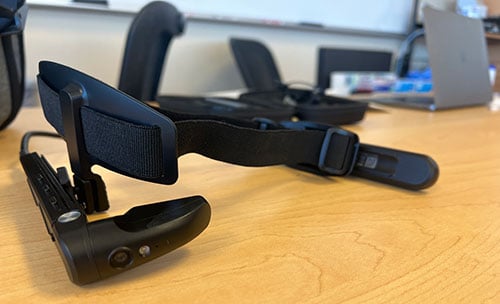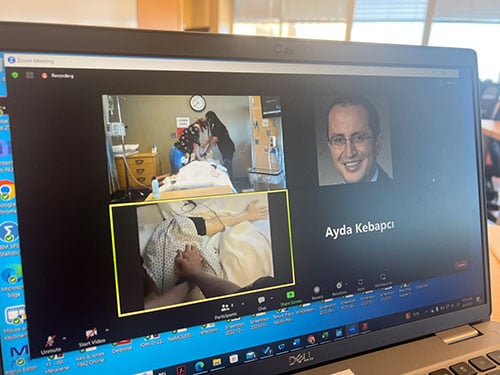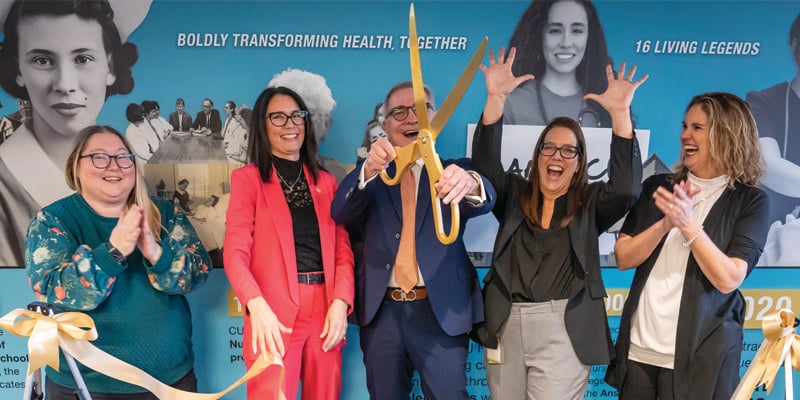Two University of Colorado College of Nursing associate professors at the Anschutz Medical Campus are using smart glasses to enhance nursing education – and they hope to use that technology in nursing care.
Associate Professor Mustafa Ozkaynak, PhD, Assistant Professor and Senior Director of the Experimental Learning Team Fara Bowler, DNP, APRN, CHSE and visiting Professor Ayda Kebapci, PhD, RN, want to see how the effects of smart glasses can improve patient care.

Smart glasses that student wore during the study. |
The three are in the initial stages of a pilot study using smart glasses to help guide students during a medical exercise. The smart glasses include a headset with camera and microphone that connects the student to a remote expert for help.
“(The expert) can see what the student is seeing, and guide them through what’s next,” Dr. Ozkaynak says.
The three-day study involved 20 students. About half of the students used glasses while performing CPR on a high-definition mannequin in the College’s simulation lab. The remaining students were in the control group and went through the exercise the way they would normally do, without smart glasses.
Students in the smart glasses group were fitted with the glasses and taught how to use them. They read over a patient scenario and went into the simulation lab to conduct the exercise and were instructed that they could access an expert via the headset when and if they needed to do so. According to Bowler, “It was up to the student to decide when to use the glasses to call for an expert.”
“It was helpful to have feedback and to make sure I was doing it right,” CU Nursing student Marlee Evans says. She participated in the study and is in the UCAN (University of Colorado Accelerated Nursing) 2023 cohort. “I think that’s part of why I was able to be calm throughout the scenario. If I was doing something wrong, I could be corrected.”
Ozkaynak, Bowler, and Kebapci will collect data, look at the video recordings, and analyze student feedback. They want to see how smart glasses can play a role in expanding access to care in rural areas or in hospitals. They say the technology could be useful for new nurses starting out in their careers.

Computer screen showing view from smart glasses. |
“I think the advantages are you get real-time feedback,” Evans says. “The auditory feedback was helpful because I could focus on how I feel, which will be important if I’m actually doing CPR, instead of that visual feedback I’m used to getting [with other simulations].”
“(The technology) can help patient outcomes, enhance nursing training, and give information for nurses that don’t have certain training,” Bowler says. “This study hopes to use the research to improve student learning in controlled environments, advance nursing education, and expand the roles of nurses.”
Ozkaynak, Bowler, and Kebapci plan to present their findings next July at the 16th International Congress in Nursing Informatics (NI2024).



